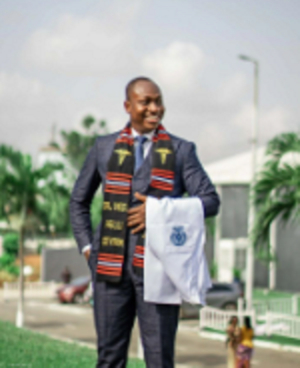The first Homowo lecture organised as part of the Homowo festivities of the people of Accra was held at the Arts Centre in Accra, last weekend. It was organised by the Ga Traditional Council and the Institute of African Studies. Three lecturers from the institute namely Dr Irene Odotei, the Director and two senior lecturers, Rev. Dr S. S. Quarcoopome, and Rev. Dr Abraham Akrong, gave presentations on three topics.
Giving the background of the lecture, which was attended by a number of people, including prominent Ga chiefs such as Nii Adote Obour I, acting President of the Ga Traditional Council among others, Nii Tetteh Ameh Abbey, a consultant on Ga Traditional Culture, who was the chairman for the occasion, said that, the lecture was the first of a series planned to elighten the public on aspects of Ga culture and its rich heritage.
In her presentation, Dr Irene Odotei, who spoke on “ Issues of Ga identity and their origin,” Pointed out that, so much has been said about the origins of the Gas, thus creating a lot of confusion which is becoming quite dangerous academically.
She advised those who want to know about the origins of the Ga people “to learn from the Kple songs of the Kple Cult, which have been handed down to us and which say; we came from far away, we came from the south.”
According to her, some historians such as Reindorf, Quartey Papafio and others, claim that the Gas came from Israel and based their claims on the fact that Gas have similarities in their culture to that of the Israelis and questioned whether “because Ghanaians speak English and do things like them they can be said to have come from England.”
She disclosed that her investigations from the old people indicate that even though some Ga tribes came from somewhere “unknown”, they met other Gas here. On identity, Dr. Odotei explained that language and the system of naming by the GaDangbe people are the surest way of identifying them. Dr Odotei expressed regret that the Gas have not been able to forge unity among themselves, because the colonialists kept them apart to ensure that they do not become a strong force.
She used the opportunity to call on Gas, especially the chiefs, to unite to enhance the development of the Ga State.
Dr Odotei also stated that, the Institute of African Studies has set the ball rolling, by starting a programme on capacity building for the Ga chiefs through which they are educated on various areas of development and given certificates at the end of the training.
Speaking on “Urbanisation of Ga Culture,” Rev Dr S. S. Quarcoopome, said among other things that the problems of the Gas started when Accra was made the capital of Ghana in 1877.
He pointed out that many decisions were taken without consideration for the indigenous people then and now which is why issues connected with their religious and cultural practices sometimes come into conflict with people from other places who are now resident in Accra.
Dr Quarcoopome also harped on the need for unity among Gas and called on the chiefs to stop selling stool lands.
According to him, Accra is an earthquake prone zone and asked where the Gas will be resettled in the event of a devastating quake when all the lands get sold.
He charged Gas to unite and prompt government to make laws and take decisions that will benefit them and not pull them apart.
Giving a presentation on “Religion of the Gas”, Rev Dr Abraham Akrong stated that, the constitution of Ghana allows freedom of worship and this has given room for other religions to frown on the Ga religious and cultural practices. According to him, “Christianity has affected the Ga religion because most Christians believe that once you become a Christian you do not need to undertake the rituals associated with the traditional religions.
Rev Dr Akrong stressed that customs and traditional rites should reinforce the Christian worship in a positive way, especially as Christianity also passed through a lot while evolving to its present state.
He also called on all chiefs to unite and encouraged them to form groups and learn new things that will enhance their cultural practices.
A festival brochure specially prepared to inform and educate the public on the Homowo Festival edited by Nii Ameh Abbey with articles by Dr Emmanuel Acquaye, and other lecturers were launched at the function.
General News of Friday, 23 August 2002
Source: Nii Addokwei Moffatt
Homowo lecture held in Accra
Entertainment











